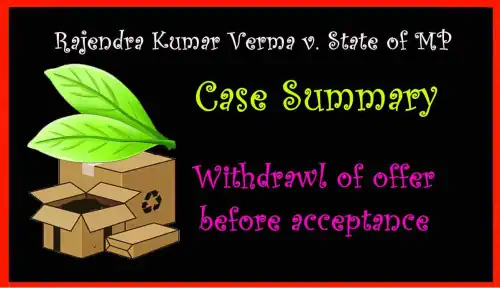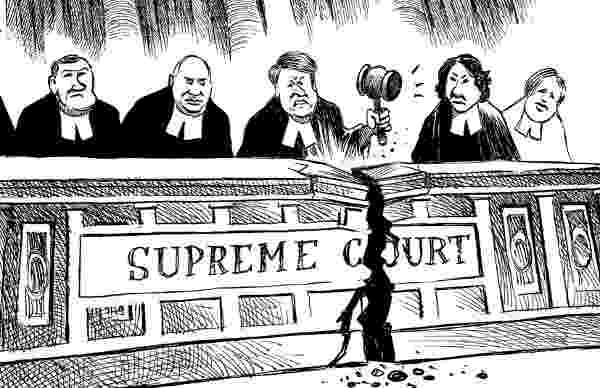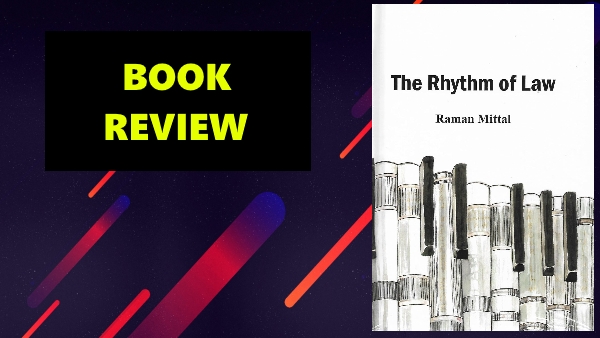Rajendra Kumar Verma v. State of MP case gave an important ruling regarding the offer and acceptance in cases of tenders. Supreme Court in Rajendra Kumar Verma vs State of Madhya Pradesh held that a person who makes an offer is entitled to withdraw his offer or tender before its acceptance is intimated to him. The government, by merely providing a clause in the tender that it cannot be withdrawn before it is opened if there is no other tender, cannot take away the legal right of the petitioner to withdraw the offer before acceptance.
BENCH:
Honorable Chief Justice B Dayal, Honorable Justice A. Sen
PROVISIONS APPLIED:
Article 299 of the Indian Constitution, which states the protection of both the parties under the contract.
CASES REFERRED:
Century Spinning and Manufacturing Co. Ltd. v. Ulhasnagar Municipal Council (AIR 1971 SC 1021)
FACTS OF THE CASE:
- Respondent invites tender for the sale of Tendu-Leaves (Patta) from Budni, Thus the petitioner accepts the tender at the rate of Rs. 38.25p per bag and he has also deposited some amount in the form of security.
- Before the tender is opened the petitioner made an application and refused to open it. Since this was the only tender, the tender was sent to the government, and the government accepted that.
- Now when the petitioner had not executed the tender, a suit has been instituted for the recovery of Rs. 24,846.12p on the allegation that the part about Tendu leaves was sold to somebody else and the balance amount was recoverable from the petitioner.
ISSUES FRAMED:
- Is there any tender on behalf of the petitioner as he had withdrawn his tender before it was opened?
- Is there any enforceable contract between the petitioner and the state government?
JUDGEMENT:
- It was held that as per the terms and conditions No. 10(b)(i) of the contract the tenderer is allowed to withdraw his tender before opening if there should be at least one valid tender completed available for the consideration of the particular unit. In this case, since there was not any other tender withdrawal of the tender cannot be done.
- A person who makes the offer has a right to withdraw the tender before it was accepted. Providing this clause in the contract by the government then this right cannot be taken away from the petitioner. Petitioner has applied for the withdrawal of the tender and it had not been denied therefore it was clear that when the tender was opened there was no offer by the petitioner and hence any implied or explicit contract has ever existed between the parties.
CONCLUSION:
Supreme Court held that a person who makes an offer is entitled to withdraw his tender before its acceptance is intimated to him. The government, by providing a clause in the tender that it cannot be withdrawn before it is opened if there is no other tender, cannot take away the right of the petitioner to withdraw the offer before acceptance.
It was concluded that since there was no implied or explicit contract between the parties, therefore write petition was allowed in this case and the demand for the outstanding amount from the petitioner was quashed and refunded.
It was further held that unless there is a valid contract executed as envisaged by Article 299(1) of the Indian Constitution, where the government is a party, there could be no enforceable contract at all.
BEST BOOK FOR CONTRACT LAW: Contract Law by RK Bangia (Latest Edition)





